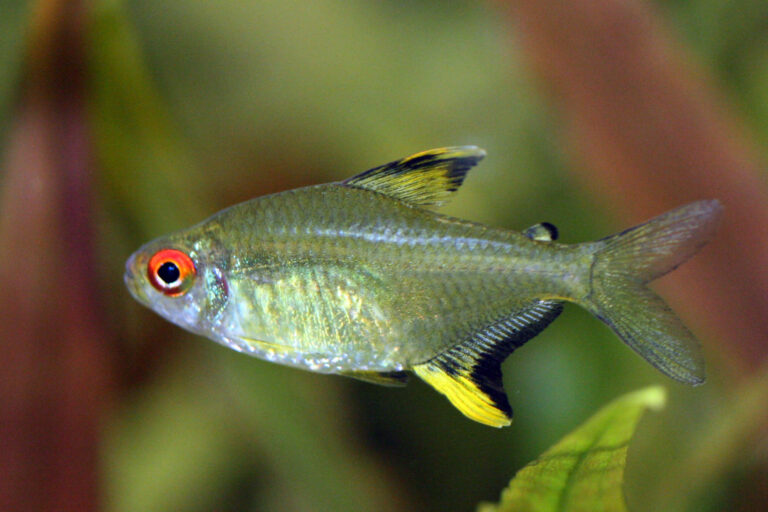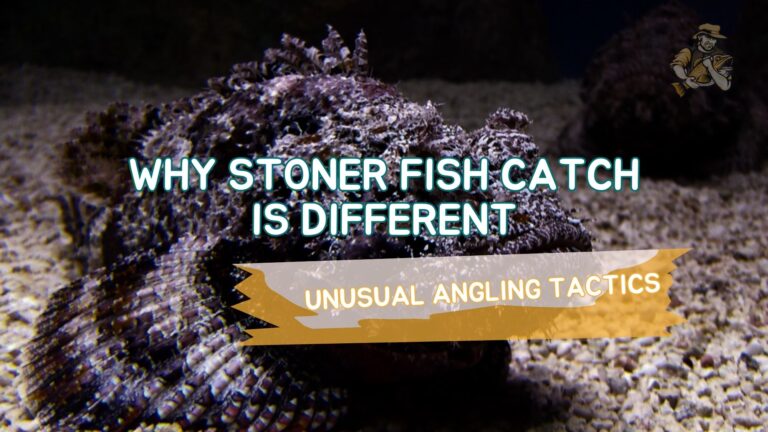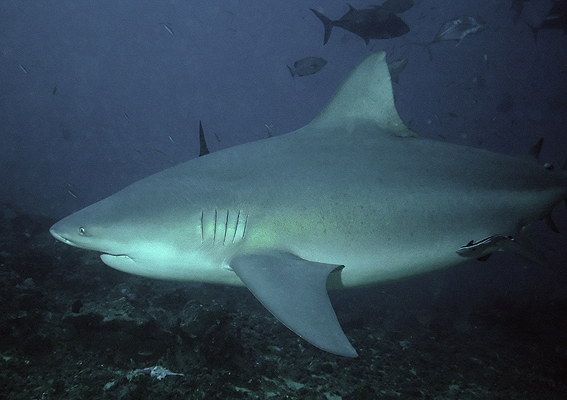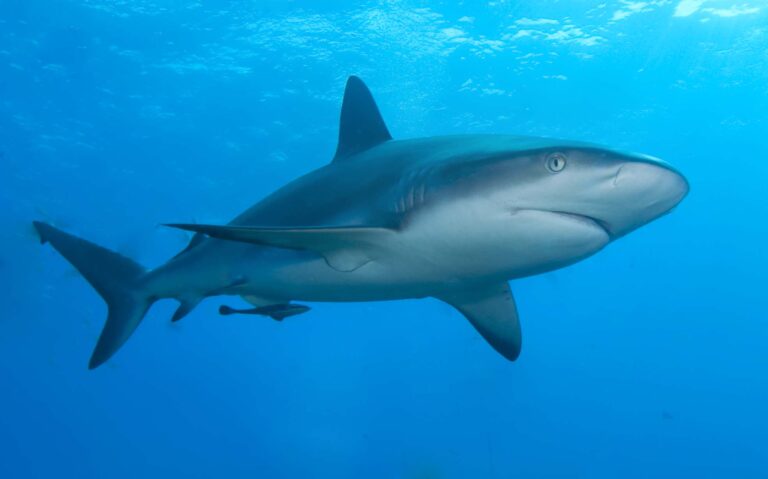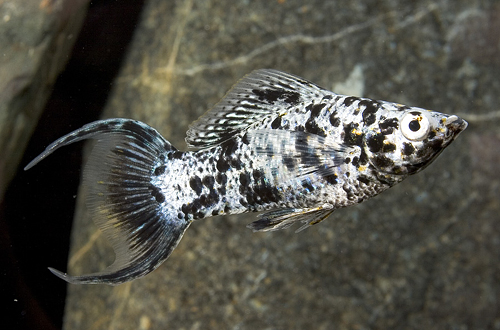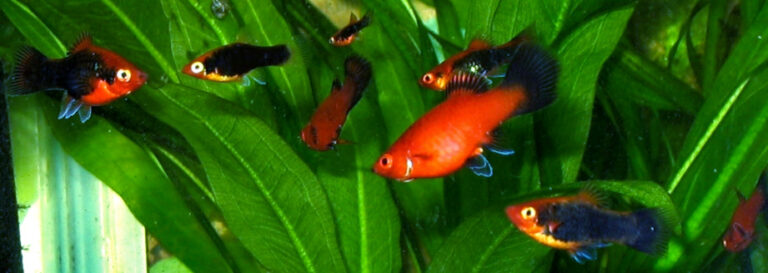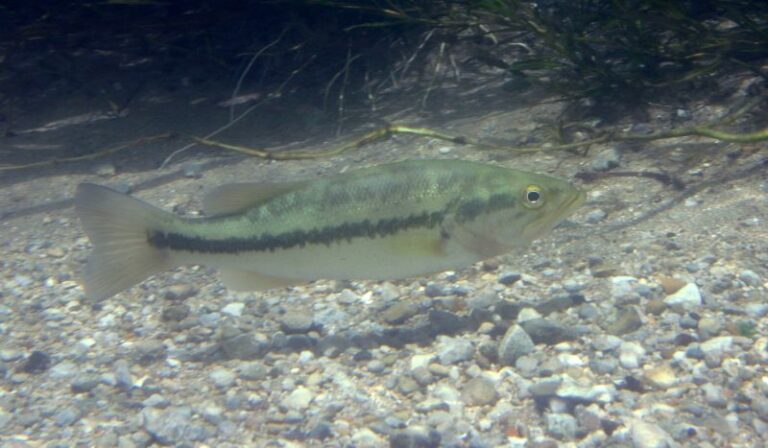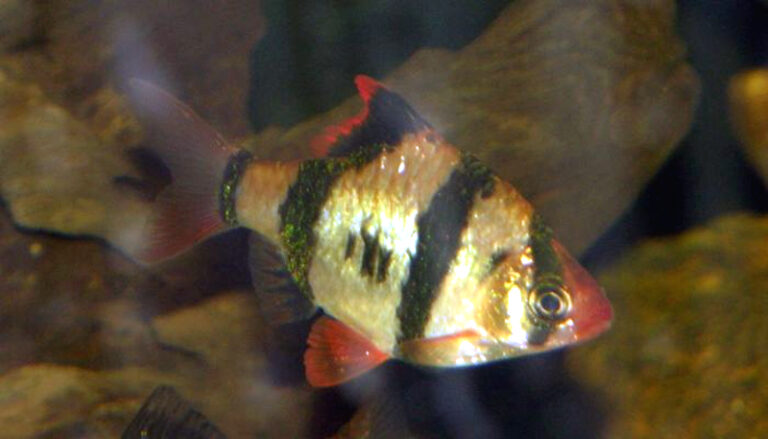Banana Fishing Myths Busted: The Truth Behind Fishing’s Strangest Superstition
By Adam Hawthorne | Last Modified: May 4, 2025
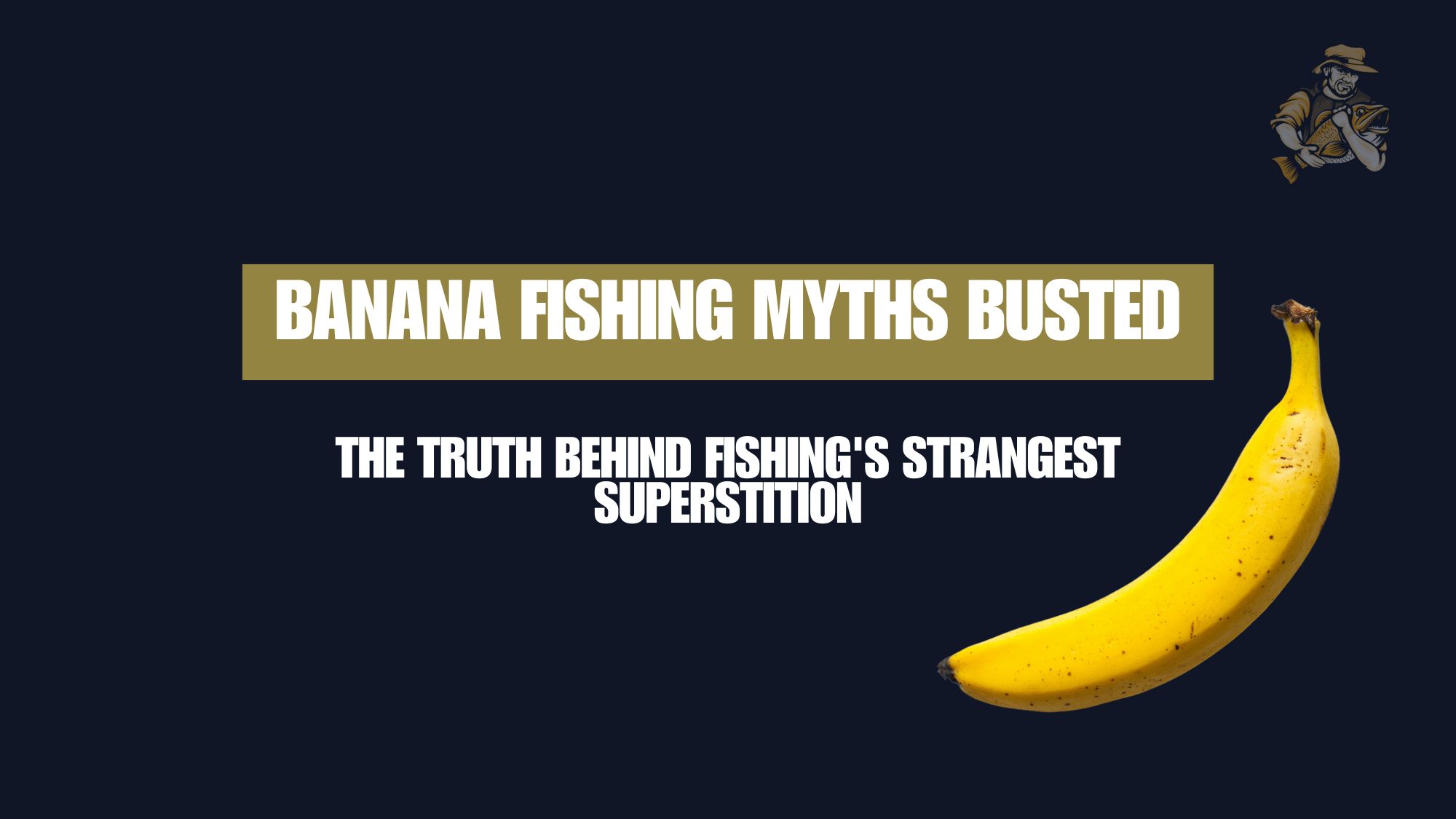
Ask any hardcore angler about bringing a banana on their boat, and you might get a reaction stronger than if you’d suggested using dynamite to catch fish. I’ve seen grown men refuse to board vessels when they spotted someone eating a banana on the dock. My fishing buddy Dave once made us turn his 28-foot Grady White around – 45 minutes into a 3-hour journey to our offshore spot – because he remembered his wife had packed banana bread in his lunch. $120 in wasted fuel because of a baked good.
Is there any truth to this bizarre superstition? After 30+ years of fishing everything from farm ponds to offshore seamounts, I’ve had plenty of time to examine this peculiar fishing taboo from every angle. Let’s separate fact from fiction and examine whether this tropical fruit deserves its notorious reputation on the water.
The Banana Boat Curse: Where This Fishing Superstition Actually Came From
Like most fishing myths, the banana superstition has murky origins but plenty of passionate believers. The most common theory traces back to the 1700s, when trading ships would sink during Caribbean voyages while carrying banana cargo. The real culprit wasn’t supernatural – it was likely that bananas release ethylene gas that speeds up the ripening of other fruits. This meant ships carrying bananas had to travel faster before their cargo spoiled, possibly passing through dangerous weather that slower vessels might have avoided.
Another explanation I heard from an old charter captain in Key West related to banana spiders. These venomous stowaways would hide in banana bunches and occasionally bite sailors, leading to illness or death that seemed connected to the fruit itself. That’s according to Captain Mike, who refused to let passengers wear Banana Republic t-shirts on his boat – no joke, he kept loaner shirts onboard for “dress code violations.”
A fascinating history of maritime superstitions lists several other potential origins, but most historians agree it predates modern sportfishing.
Some anglers I’ve fished with in northern Michigan insist it’s much simpler – they claim the banana peels are slippery on boat decks, creating hazards. This always struck me as a desperate attempt to rationalize an irrational belief. As if other foods don’t create messes? I’ve seen more falls from spilled coffee than banana peels in three decades on boats.
What’s most likely is that the superstition persists because of confirmation bias. When fishing is poor (which happens for countless legitimate reasons), and someone discovers a banana onboard, the fruit becomes an easy scapegoat. Nobody remembers the successful trips where bananas were present – only the disappointing ones.
From Dock Talk to Gospel Truth
When I started fishing back in the late 80s, I’d never heard of the banana superstition. I distinctly remember bringing bananas as snacks on my grandfather’s Boston Whaler when targeting smallmouth bass on Grand Traverse Bay. He never mentioned it being a problem. It wasn’t until I started deep sea fishing in my twenties that I encountered this widespread belief.
My first exposure came during a charter trip out of Islamorada in the Florida Keys. I was munching a banana while waiting to board at 5:30am, and you’d think I was wearing a Chicago Bears jersey at a Packers game. The mate practically tackled me, explaining in colorful language that bananas were strictly forbidden on their boat.
Initially, I thought it was just a quirk of that particular charter operation. But over the next few years, I encountered the same superstition across vastly different fishing environments:
- A salmon charter captain on Lake Michigan who checked coolers specifically for “contraband fruit”
- A bass tournament angler who blamed his poor performance on his co-angler’s banana-flavored protein bar
- A fly fishing guide in Montana who refused to let clients bring banana-flavored energy gels
The strangest case was probably my buddy Tom, who swears a banana Laffy Taffy candy ruined his chances at landing a trophy muskie on the St. Lawrence. The fish of a lifetime followed his lure to the boat before turning away at the last second. When he reached into his pocket for his phone to check the time, he discovered the forgotten candy and immediately made the connection. He now inspects every pocket before fishing trips.
Does the Banana Fishing Superstition Actually Affect Fishing Success?
I’ve spent a lot of time thinking about this over the years, and I’ve flip-flopped on my position more than once. During my early fishing days, I thought it was complete nonsense. Then, I had a few genuinely terrible fishing days where bananas were discovered onboard. Coincidence? Probably. But in the moment, it’s easy to make connections.
There’s one experience that almost converted me to a true believer. In 2012, I was fishing off the coast of Panama at a lodge that specialized in big yellowfin tuna. After three incredibly successful days, we suddenly couldn’t buy a bite. Absolutely nothing – not a single strike for hours. When we returned to the dock, dejected and confused, the mate found a banana that had rolled under the console, apparently left by the previous day’s clients.
The next day? We landed 11 yellowfin, including a 187-pounder that took over an hour to boat.
Was it the banana? Of course not. The far more logical explanation is that tuna schools move, conditions change, and fishing success naturally fluctuates. But man, stories like that stick with you.
From a scientific perspective, there’s zero evidence that bananas impact fishing success. Fish don’t have banana-detecting abilities. They’re responding to water temperature, barometric pressure, light levels, food availability, and dozens of other variables that actually matter.
A marine biologist’s analysis of fishing superstitions confirms there’s no biological mechanism that would explain why bananas would repel fish. The author notes that many fishing superstitions persist because fishing itself involves so many uncontrollable variables, making it easy to attribute success or failure to superstitious beliefs.
The Power of Belief in Fishing
Whether bananas actually affect fishing doesn’t change the fact that the belief itself can impact fishing success. This is where things get interesting.
If a captain or angler truly believes bananas are bad luck, the presence of one can:
- Create tension and negative energy on the boat
- Distract from focusing on fishing effectively
- Provide a psychological excuse if fishing is slow
- Lead to second-guessing effective fishing strategies
I’ve seen experienced anglers completely change their tactics after discovering a banana onboard – abandoning proven methods because they believe the “curse” has already doomed the trip. That’s the real danger of the superstition – it changes behavior, which absolutely can affect fishing success.
My friend Dave, who I mentioned earlier turning his boat around because of banana bread, later confessed that his obsession with the superstition had cost him thousands of dollars and many potentially good fishing days over the years. But he still won’t allow bananas on his boat.
The Most Extreme Banana Fishing Superstition Cases I’ve Witnessed
Some anglers take this superstition to truly wild extremes. In my years of fishing, I’ve witnessed some genuinely bizarre banana-related behavior:
- A charter boat in Key West that conducts “banana inspections” before departure, including checking ingredients lists on packaged foods
- A mate who made a client throw away his tube of Banana Boat sunscreen (worth noting – there’s no actual banana in the sunscreen)
- A tournament angler who refused to fuel up at a gas station because they had a banana display visible through the window
- A marina in Florida with a giant “No Bananas” sign hanging above the entrance
- A captain who threw someone’s phone overboard because it had a banana phone case
The most extreme case happened during a fishing trip out of Destin, Florida. We were targeting amberjack on a public charter with about 12 other anglers. One guy pulled out a banana during the 2-hour ride to the reef. The captain spotted it, immediately turned the boat around, and headed back to port. He refunded everyone’s money except the “banana offender” and ended a $2000+ trip because of a single piece of fruit. The banana-bringer was nearly thrown overboard by the other angry clients.
That incident seems insane, but it’s a perfect illustration of how deeply ingrained this superstition is within fishing culture. It’s not just a quirky belief – for many, it’s gospel.
The Strange Exceptions to the Banana Ban That Make No Sense
What makes this superstition even more fascinating are the inconsistencies in how it’s applied. I’ve noticed some bizarre exceptions to the banana rule:
- Banana Boat sunscreen is prohibited on many vessels, but other banana-scented products might get a pass
- Banana bread is almost universally banned, but banana-flavored fishing lures are often permitted (and sometimes considered good luck)
- Some captains ban banana-flavored gum or candy, while others only care about the actual fruit
- Certain boats ban the word “banana” from being spoken, while others just ban the physical fruit
- I know a captain who won’t allow bananas but eats a Snickers bar (containing banana flavoring) as his “lucky” pre-fishing ritual
These inconsistencies highlight the irrational nature of the superstition. If there were an actual mechanism by which bananas repelled fish, it would apply consistently across all banana forms.
My personal favorite inconsistency was a guide in the Bahamas who wouldn’t allow bananas on his boat but kept a banana plug (a device used to plug the scupper holes in a boat) in his tackle box. When I pointed out the contradiction, he explained, “That’s different – it’s shaped like a banana but it isn’t a banana.” Can’t argue with that impeccable logic.
Why Some Anglers Deliberately Break the Banana Taboo
Not everyone subscribes to the banana superstition. Some anglers actively rebel against it:
- A tournament angler I know brings bananas on his boat specifically to prove the superstition wrong
- A YouTube fishing channel built an entire brand around fishing successfully with bananas present
- A charter captain in Tampa advertises “banana-friendly fishing trips” as a marketing gimmick
There’s even a fishing lure company that makes banana-shaped and colored lures specifically marketed as “curse breakers.” I bought one as a joke to use on a particularly superstitious friend’s boat. I waited until we’d caught several fish before revealing it, which led to a lengthy debate about whether the curse had been broken or never existed.
I personally go back and forth. On my own boat, I don’t care if people bring bananas. But when I’m on someone else’s vessel, I respect their rules, no matter how irrational they might seem. It’s not worth ruining a fishing trip over a snack preference.
Putting the Banana Superstition to the Test
A few years ago, I decided to conduct my own highly unscientific experiment. Over the course of a summer, I tracked my fishing success with and without bananas present. I fished 17 trips with bananas and 22 without, keeping all other variables as consistent as possible (same bodies of water, similar weather conditions, targeting the same species).
The results? Absolutely no statistical difference in catch rates. In fact, my two most successful days that summer (a 42-fish day for smallmouth and a limit of walleye in under two hours) both happened with bananas onboard.
Of course, this wasn’t a controlled scientific study, but it was enough to convince me personally that the superstition had no merit. I shared these results with some fishing buddies, and their response was telling: “You just got lucky despite the bananas.”
That’s the thing about superstitions – they’re remarkably resistant to evidence.
A fishing charter company’s multi-year banana experiment showed similar results. After documenting hundreds of charters, they found no correlation between banana presence and fishing success. But many of their clients still requested “banana-free boats.”
What Fish Really Respond To (Hint: It’s Not Fruit Preference)
Instead of worrying about bananas, anglers would be better served focusing on factors that actually impact fishing success:
- Weather patterns and barometric pressure
- Water temperature and clarity
- Seasonal feeding behaviors
- Bait presentation and lure selection
- Location and structure
- Time of day and light conditions
These variables have measurable, provable effects on fishing success. I’ve seen perfect days ruined by a cold front and seemingly hopeless conditions turn into incredible fishing when you find the right structure.
During a bass tournament on Lake St. Clair a few years back, my partner was convinced we were cursed because someone had eaten a banana at our launch point. We struggled all morning until we noticed a subtle change in the wind direction. We adjusted our drift pattern, targeting different structure, and suddenly started catching quality smallmouth. The “curse” was lifted not by removing a banana but by making a tactical adjustment based on changing conditions.
How to Handle the Banana Superstition on Fishing Trips
Whether you believe in the superstition or not, it’s a real part of fishing culture that you’ll likely encounter. Here’s how I recommend handling it:
- When on someone else’s boat: Respect their rules, period. It doesn’t matter if you think it’s ridiculous – it’s their boat.
- When fishing with superstitious friends: Decide if proving a point is worth potentially ruining the trip’s vibe. Usually, it’s not.
- When running your own boat: Set whatever rules you want, but make them clear to guests beforehand.
- When booking charters: Ask about food/snack policies upfront. Some operations are serious about the no-banana rule.
- If you accidentally bring a banana: Dispose of it discreetly. Don’t make a big announcement that might affect group morale.
I learned lesson #5 the hard way on a grouper trip in the Gulf of Mexico. One angler discovered a forgotten banana in his bag and announced it to the entire boat. The collective mood instantly changed, with several anglers actually giving up fishing for the day. The banana hadn’t affected anything until everyone knew it was there – then it became a self-fulfilling prophecy.
Strange Banana-Related Fishing Traditions and Rituals
Beyond the simple “no bananas” rule, some fishing communities have developed elaborate rituals around the superstition:
- “Banana exorcisms” where boats are ritually cleansed if a banana is discovered
- Pre-fishing trip banana inspections with elaborate checklists
- “Offering ceremonies” where a banana is sacrificed to the sea before beginning fishing
- Specialized cleaning products marketed specifically to remove “banana residue” from boats
A mate on a sportfishing boat in Hawaii told me they perform a specific cleansing ritual if a banana is discovered mid-trip. It involves circling the boat counterclockwise three times while sprinkling sea salt, followed by everyone taking a sip of whiskey (though I suspect the whiskey part is just a bonus).
These rituals highlight how a simple superstition can evolve into complex cultural practices over time.
Other Bizarre Fishing Superstitions That Make the Banana Thing Seem Normal
The banana superstition isn’t the only strange belief in fishing culture. Here are a few others I’ve encountered:
- Never bring a black suitcase on a boat
- Don’t leave port on a Friday
- Never say “good luck” before a fishing trip (say “tight lines” instead)
- No whistling on boats (it summons winds)
- Never turn a hatch cover upside down
- Women on boats are bad luck (this sexist one thankfully seems to be fading)
I have a personal fishing hat that I’ve worn for nearly 15 years. It’s disgustingly salt-crusted and probably a biohazard at this point, but I’ve caught some of my best fish while wearing it. Is it lucky? Rationally, I know it’s not. But I still wear it on important fishing days.
The human brain is wired to find patterns and correlations, even when they don’t exist. Fishing, with all its unpredictability, creates a perfect environment for superstitions to flourish.
Banana-Themed Fishing Gear That Breaks All the Rules
Ironically, there’s an entire category of fishing products that deliberately play on the banana superstition:
- Banana-shaped topwater lures
- Fishing rods with banana-colored accents
- “Lucky banana” fishing hats and apparel
- Banana-scented fishing attractants
One of the most effective musky lures I’ve used is bright yellow with a distinct banana shape. When fishing with superstitious friends, I refer to it as my “yellow curved lure” rather than what it’s actually called – the “Big Banana.”
This commercialization of the superstition suggests that even among believers, there’s a sense of humor about the whole thing. We know it’s irrational, but traditions persist anyway.
FAQ About Fishing’s Banana Superstition
Does the banana superstition apply to freshwater fishing too?
Yes, though it seems more prevalent in saltwater circles. I’ve met plenty of die-hard bass and musky anglers who won’t allow bananas near their boats. My theory is that the superstition migrated from maritime traditions into general fishing culture. That said, I’ve noticed Great Lakes salmon and trout anglers tend to be particularly superstitious, probably because those fisheries evolved from saltwater traditions.
What about banana-flavored things like drinks or candy?
This is where the superstition gets inconsistent. Some hardliners ban anything banana-related, including artificial flavors and scents. Others only worry about the actual fruit. I knew a captain who would allow banana-flavored energy drinks but not real bananas, which makes zero logical sense. If there were some mechanism by which bananas affected fishing, surely the chemical compounds responsible would be present in artificial flavoring too.
Will charter captains really cancel trips over bananas?
Some absolutely will, as I mentioned with my Destin charter experience. Many operations explicitly mention their banana policy when booking. If you’re spending good money on a charter, it’s not worth testing the captain’s resolve on this issue. Just leave the bananas at home.
Is this superstition worldwide or just an American thing?
It’s remarkably widespread across different fishing cultures. I’ve encountered versions of it in the Caribbean, Central America, Australia, and parts of Europe. The details sometimes vary, but the core belief is similar. While fishing in Costa Rica, I learned they have a saying that translates roughly to “Bananas on board, fish go away.” Different words, same superstition.
Does the banana superstition apply to fishing tournaments?
Absolutely. Some tournaments even include “no bananas” in their official rules. Even in events without formal rules, bringing bananas around competitive anglers is asking for trouble. Tournament fishing is high-pressure enough without adding supernatural concerns.
Final Thoughts on Fishing’s Strangest Superstition
After three decades of fishing and countless conversations about the banana superstition, I’ve come to a simple conclusion: it doesn’t matter if bananas actually affect fishing. What matters is how the belief affects anglers.
Fishing involves so many uncontrollable variables – weather, water conditions, fish behavior, timing, and luck. In the face of such uncertainty, superstitions provide a sense of control. They give us something to blame when fishing is poor and rituals to perform when seeking success.
The banana superstition persists not because there’s truth to it, but because fishing culture thrives on tradition, storytelling, and shared beliefs. It’s one of the quirky aspects that makes the fishing community unique.
So next time you’re packing snacks for a fishing trip, maybe leave the bananas at home – not because they’ll actually affect your catch rate, but because fishing is more enjoyable when everyone on the boat feels confident and positive. And if that means participating in a centuries-old superstition, well, there are worse traditions to uphold.
Besides, there are plenty of other perfectly good fruits that don’t come with a side of supernatural anxiety. I’ve never heard of anyone blaming a poor fishing day on an apple.

Meet Adam Hawthorne
I’m a lifelong fishing enthusiast who’s spent years exploring rivers, lakes, and oceans with a rod in hand. At Fishing Titan, I share hands-on tips, honest gear reviews, and everything I’ve learned about fish and ocean life, so you can fish smarter and enjoy every cast.
Share:

Meet Adam Hawthorne
I’m a lifelong fishing enthusiast who’s spent years exploring rivers, lakes, and oceans with a rod in hand. At Fishing Titan, I share hands-on tips, honest gear reviews, and everything I’ve learned about fish and ocean life, so you can fish smarter and enjoy every cast.
Related Articles
-
Lemon Tetra
The Lemon Tetra (*Hyphessobrycon pulchripinnis*) stands as one of South America’s most vibrant freshwater fish species, distinguished by its brilliant yellow coloration and peaceful schooling…
-
Why Stoner Fish Catch is Different: Unusual Angling Tactics
Let’s face it – some fish just act plain weird. Whether you’re an experienced angler or just starting out, you’ve probably encountered fish that seem…
-
Bull Shark
The Bull Shark represents one of the most formidable apex predators in marine ecosystems worldwide. Known scientifically as Carcharhinus leucas, this remarkable species has earned…
-
Caribbean Reef Shark
The Caribbean Reef Shark (*Carcharhinus perezi*) stands as one of the most recognizable and ecologically significant predators patrolling the warm waters of the western Atlantic…
Fish Species
-
Lyretail Molly
The Lyretail Molly (*Poecilia latipinna*) stands as one of the most recognizable and ecologically significant freshwater fish species in North American aquatic ecosystems. This vibrant…
-
Tuxedo Platy
The Tuxedo Platy (Xiphophorus maculatus) stands as one of the most recognizable and beloved freshwater aquarium fish species, distinguished by its striking black and white…
-
Largemouth Bass
The Largemouth Bass, scientifically known as *Micropterus salmoides*, stands as one of North America’s most iconic freshwater gamefish and a cornerstone species in countless aquatic…
-
Tiger Barb
The Tiger Barb (Puntigrus tetrazona) stands as one of Southeast Asia’s most recognizable freshwater cyprinids, distinguished by its vibrant golden-orange coloration and distinctive black vertical…

